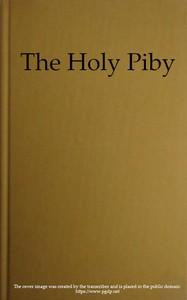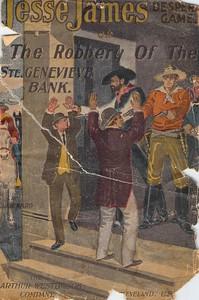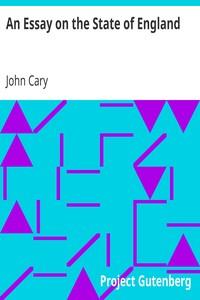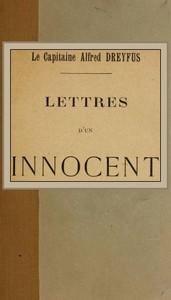Read this ebook for free! No credit card needed, absolutely nothing to pay.
Words: 12742 in 7 pages
This is an ebook sharing website. You can read the uploaded ebooks for free here. No credit cards needed, nothing to pay. If you want to own a digital copy of the ebook, or want to read offline with your favorite ebook-reader, then you can choose to buy and download the ebook.


: The Holy Piby by Rogers Robert Athlyi - African Americans Religion; Afro Athlican Constructive Church Sacred books; Rastafari movement Sacred books; Black people West Indies Religion
PREFACE vii
CORRIGENDA xxvii
CHAP.
INDEX 401
PREFACE Students of Ralegh's career cannot complain of a dearth of materials. For thirty-seven years he lived in the full glare of publicity. The social and political literature of more than a generation abounds in allusions to him. He appears and reappears continually in the correspondence of Burleigh, Robert Cecil, Christopher Hatton, Essex, Anthony Bacon, Henry Sidney, Richard Boyle, Ralph Winwood, Dudley Carleton, George Carew, Henry Howard, and King James. His is a very familiar name in the Calendars of Domestic State Papers. It holds its place in the archives of Venice and Simancas. No family muniment room can be explored without traces of him. Successive reports of the Historical Manuscripts Commission testify to the vigilance with which his doings were noted. No personage in two reigns was more a centre for anecdotes and fables. They were eagerly imbibed, treasured, and circulated alike by contemporary, or all but contemporary, statesmen and wits, and by the feeblest scandal-mongers. A list comprising the names of Francis Bacon, Sir John Harington, Sir Robert Naunton, Drummond of Hawthornden, Thomas Fuller, Sir Anthony Welldon, Bishop Goodman, Francis Osborn, Sir Edward Peyton, Sir Henry Wotton, John Aubrey, Sir William Sanderson, David Lloyd, and James Howell, is far from exhausting the number of the very miscellaneous purveyors and chroniclers.
One main duty of a biographer of Ralegh is to be strenuously on the guard against degenerating into an apologist. But, above all, he ought to be versed in the art of standing aside. While explanations of obscurities must necessarily be offered, readers should be put into a position to judge for themselves of their sufficiency, and to substitute, if they will, others of their own. Commonly they want not so much arguments, however unegotistical and dispassionate, as a narrative. They wish to view and hear Ralegh himself; to attend him on his quick course from one field of fruitful energy to another; to see him as his age saw him, in his exuberant vitality; not among the few greatest, but of all great, Englishmen the most universally capable. They desire facts, stated as such, simply, in chronological sequence, and, when it is at all practicable, in the actor's own words, not artificially carved, coloured, digested, and classified. As for failings and infirmities, they are more equitable and less liable to unreasonable disgusts than a biographer is inclined to fancy. They are content that a great man's faults, real or apparent, should be left to be justified, excused, or at all events harmonized, in the mass of good and ill.
No biographer of Ralegh need for lack of occupation stray from the direct path of telling his readers the plain story of an eventful life. The rightful demands on his resources are enough to absorb the most plentiful stores of leisure, patience, and self-denial. He should be willing to spend weeks or months on loosing a knot visible to students alone, which others have not noticed, and, if they had, would think might as profitably have been left tied. He should collect, and weigh, and have the courage to refuse to use, piles of matter which do not enlighten. He should be prepared to devote years to the search for a clue to a career with a bewildering capacity for sudden transformation scenes. He should have the courage, when he has lost the trace, to acknowledge that he has wandered. He should feel an interest so supreme in his subject, in its shadows as in its lights, as neither to count the cost of labour in its service, nor to find affection for the man incompatible with the condemnation of his errors. Finally, after having arrived at a clear perception of the true method to be pursued, and ends to be aimed at, he should be able to recognize how very imperfectly he has succeeded in acting up to his theory.
W.S.
Not a few readers and critics, who have been so kind as to speak otherwise only too favourably of the book, have intimated that its value would be increased by references to the authorities.
In compliance with the suggestion, the author now prints the list--a formidable one. He has drawn it up in a form which, he hopes, may enable students without much difficulty to trace the sources of the statements in the text.
Example--
BACON, ANTHONY, Correspondence : pp. 89 , 108 .
Free books android app tbrJar TBR JAR Read Free books online gutenberg
More posts by @FreeBooks

: Jesse James' Desperate Game; Or The Robbery of the Ste. Genevieve Bank by Ward William Author At Arthur Westbrook Co Cleveland Ohio - Western stories; James Jesse 1847-1882 Fiction


: The New Science of Controlled Breathing Vol. 2 (of 2) The Secret of Strength Energy and Beauty—Through Breath Control by Lankow Edward - Voice culture; Respiration





